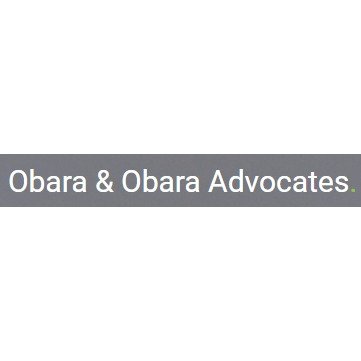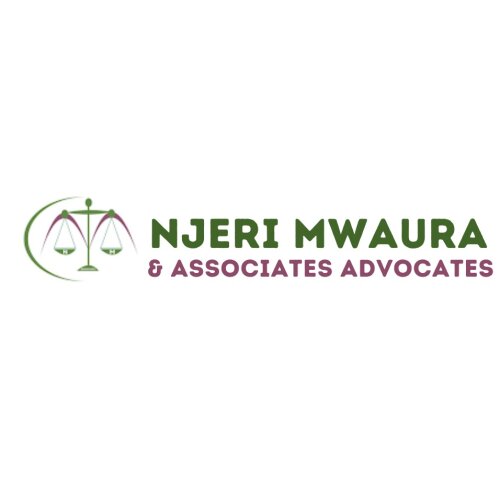Best Arrests & Searches Lawyers in Kenya
Share your needs with us, get contacted by law firms.
Free. Takes 2 min.
Or refine your search by selecting a city:
List of the best lawyers in Kenya
About Arrests & Searches Law in Kenya
The legal framework governing arrests and searches in Kenya is primarily outlined in the Constitution of Kenya, the Criminal Procedure Code, and other relevant statutes. This body of law aims to protect individual rights while enabling law enforcement to uphold justice and public safety. Arrests must be conducted legally, respecting human rights, without subjecting individuals to arbitrary detention or abuse. Similarly, searches must be carried out under lawful circumstances, typically requiring a warrant unless under specific exceptions provided by law.
Why You May Need a Lawyer
There are several situations where you might need legal assistance concerning arrests and searches in Kenya. Common scenarios include:
- Being subjected to an unlawful arrest or search.
- Facing criminal charges following an arrest.
- Experiencing violations of constitutional rights during legal procedures.
- Needing advice on responding to police requests or subpoenas.
- Challenging the legality of evidence obtained through searches.
- Understanding your rights when approached by law enforcement.
- Seeking bail or legal representation in court proceedings.
Local Laws Overview
Kenya's legal framework surrounding arrests and searches includes several critical components. Key aspects include:
- The Constitution of Kenya: Guarantees the right to freedom and security of the person, protection from arbitrary arrests, and the right to privacy.
- Criminal Procedure Code: Provides detailed procedures for carrying out arrests and searches, ensuring the process is conducted lawfully and respectfully.
- Police Act: Outlines the powers and duties of the police, including the conditions under which they can arrest and search individuals.
- Judicial Precedents: Court rulings further interpret and refine the application of laws regarding arrests and searches.
Frequently Asked Questions
What should I do if I'm arrested in Kenya?
You should remain calm, ask for identification from the arresting officer, and inquire about the reason for your arrest. You're entitled to contact a lawyer and should avoid making statements until legal counsel is present.
Do the police need a warrant to search my premises?
Generally, a warrant is required to search your premises. Exceptions include situations with probable cause, consent, or exigent circumstances where obtaining a warrant is impractical.
What are my rights during an arrest?
You have the right to remain silent, the right to be informed of the reasons for your arrest, the right to communicate with a lawyer, and the right to be brought before a court within 24 hours.
Can I resist an unlawful arrest?
While resisting an arrest is generally discouraged, you should calmly express that you believe the arrest is unlawful and request to speak to a lawyer immediately. Collect any available evidence and report the incident through legal channels.
What happens if the police conduct an illegal search?
Evidence obtained through an illegal search may be inadmissible in court. It is advisable to contact a lawyer to explore options for challenging the legality of the search or gathering of evidence.
How soon should I contact a lawyer after an arrest?
You should contact a lawyer as soon as possible to ensure your rights are protected and to receive legal guidance on the next steps in the legal process.
What is a bail, and how is it granted?
Bail is the conditional release of an arrested person while awaiting trial. It can be granted by the police or the court depending on the circumstances of the case and is designed to ensure the individual's return to court proceedings.
Can I accompany the police if they take someone I know into custody?
While you can follow to understand the basis of their action, you may not intervene. However, you can assist the arrested person in contacting a lawyer.
What should I do if I witness someone being arrested?
Observe the situation carefully, record any relevant details, and ensure the person's rights are respected. Offer to contact a lawyer or family members if needed.
Are searches on public transport legally justified?
Yes, under specific conditions such as security operations or with probable cause. However, these should be conducted respectfully and legally.
Additional Resources
If you need further assistance or information, consider reaching out to the following entities:
- Kenya Law Reform Commission: Offers insights into legal reforms and interpretations of the law.
- Independent Policing Oversight Authority (IPOA): Provides oversight on police conduct and addresses complaints against officers.
- Law Society of Kenya: Can help in finding licensed legal practitioners in various fields.
- Human Rights Organizations: Such as the Kenya Human Rights Commission, advocate for the protection of civil liberties.
Next Steps
If you require legal assistance regarding arrests and searches, consider the following steps:
- Document all relevant details about your situation, including any interactions with law enforcement and copies of any legal documents.
- Contact a qualified lawyer who specializes in criminal law or constitutional rights.
- Prepare any questions or concerns you have about your legal situation to discuss with your lawyer.
- Stay informed about your rights and current legal procedures in Kenya, ensuring you understand your position fully as you navigate the legal system.
Lawzana helps you find the best lawyers and law firms in Kenya through a curated and pre-screened list of qualified legal professionals. Our platform offers rankings and detailed profiles of attorneys and law firms, allowing you to compare based on practice areas, including Arrests & Searches, experience, and client feedback.
Each profile includes a description of the firm's areas of practice, client reviews, team members and partners, year of establishment, spoken languages, office locations, contact information, social media presence, and any published articles or resources. Most firms on our platform speak English and are experienced in both local and international legal matters.
Get a quote from top-rated law firms in Kenya — quickly, securely, and without unnecessary hassle.
Disclaimer:
The information provided on this page is for general informational purposes only and does not constitute legal advice. While we strive to ensure the accuracy and relevance of the content, legal information may change over time, and interpretations of the law can vary. You should always consult with a qualified legal professional for advice specific to your situation.
We disclaim all liability for actions taken or not taken based on the content of this page. If you believe any information is incorrect or outdated, please contact us, and we will review and update it where appropriate.
Browse arrests & searches law firms by city in Kenya
Refine your search by selecting a city.

















